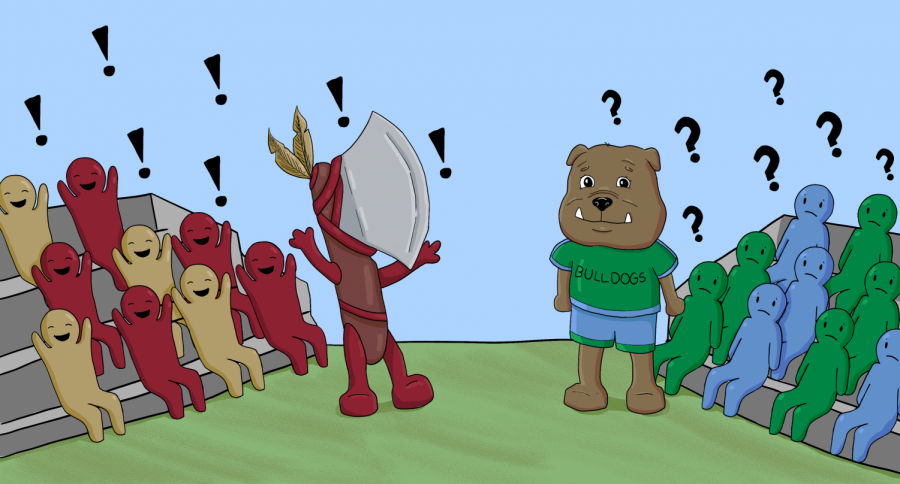Tomahawk chant appropriates culture, must be changed
Opinion Editor Brianna Tang writes that the current school chant needs to be changed as it appropriates Indigenous languages.
October 14, 2020
I still remember being at Freshman Orientation, feeling uncomfortable and shocked, the first time I heard the Algonquin student body participate in the school chant, which imitates Native American chants. Being at a majority white school, I was surprised that our school spirit chant involved totally foreign native words. Even worse, I knew that I was far from being the only student who had no idea what the words being chanted meant.
The main issue with our school chant is cultural appropriation. Culture is fluid, and it’s almost impossible to not borrow from different cultures, whether we realize it or not. However, there is a difference between positively sharing and offensively using other cultures.
The school chant, often used at sports games and pep rallies, has not been helping to honor Indigenous people, especially given the fact that there is little education about the meaning and origins of the chant or Indigenous people in our core classes. We should not be chanting foreign words of Indigenous tribes in our own school or at other schools. Even though the chant is usually done with good intentions, it doesn’t change the image and impressions we give to other schools. I know this from first-hand experience, as I’ve had friends from other schools witness our school chant and tell me afterward how uncomfortable and racist it came off.
In addition to the chant, there has been a long-standing debate over changing the Algonquin school name and mascot. There has been a petition to change both our school name and the Tomahawks mascot due to stereotyping and disrespecting Native culture. I don’t have strong opinions about this aspect because of an article by the Worcester Telegram which gave me a new perspective. Our communities priority should be to communicate with Indigenous people, and not making decisions on behalf of Native people. In addition, keeping non-stereotypical Native names and mascots could actually be a way to beneficially preserve parts of their history. However, our current school chant is where we should draw the line.
There is no reason why we cannot adopt a new school chant that holds school spirit without appropriating Indigenous languages. The usage of a chant is so simple to change and it doesn’t require any money or additional resources to just stop saying it. Unless it becomes a school-wide priority to educate students and staff on Indigenous languages, we shouldn’t be appropriating them in our school chant.










